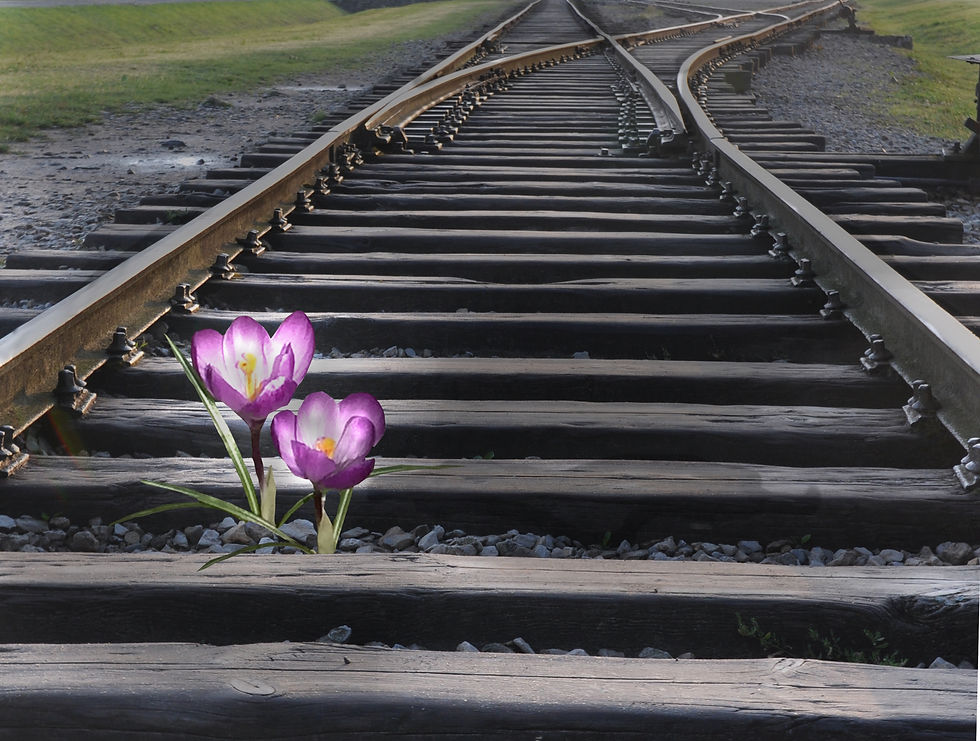On the Road to Resilience: Taking the Path Towards a More Balanced Future
- Therapy Solutions
- Apr 22, 2021
- 5 min read
Hello and happy new year everyone! I hope this blog post finds you all feeling excited and ready for new possibilities in 2018. In the spirit of good spring cleaning, I was going through my work in the past year when I found several articles I would like to share. I originally published this one for Expat Network. It discusses resilience, which I think is valuable to understand as a strengths-based approach to the many changes in our lives. So without further discussion from me, here is the article.
Enjoy! - Dr. Nelson

International living creates a unique set of challenges for Americans who choose to venture abroad. We encounter road blocks and adversity in all forms, including cross-continental moves, language barriers, cultural changes, and even financial instability. Often times, this can leave us feeling frustrated, isolated, and just plain discouraged. Recent research has shown that as many as half of expats are at increased risk for anxiety, depression, and substance abuse. Problems in family adjustment to the host country also contribute to problems in overseas life, and can contribute to up to 40% of expat families returning home before their scheduled PCS date.
What is Resilience?
So how then do expats cope with the added stresses of moving and living abroad? Much of this comes down to how we can foster and maintain the awesome power of resilience. Resilience is the ability to walk away from adversity without experiencing long-term distress, often referred to as “bouncing back.” According to the American Psychological Association (APA), persons with high levels of resilience report feeling more confident, optimistic, emotionally balanced, and in control of themselves and the world around them. As a result, resilient people recover from difficult situations more quickly, and are able to avoid emotional problems in the long-run.
Let’s side step for just a second, and talk about what resilience is not because often times this is the point where people get stuck. They think that being resilient means not experiencing negative emotions at all when times get tough. Let me be clear that resilience is NOT a lack of struggling when bad things happen, nor does it mean that you have the astonishing will power to turn everything positive afterwards. What resilience does provide us with is the ability to persevere through difficult situations and figure out how to make them work for you. Rather than some miracle trait that people are born with, resilience is actually a set of skills that you, yes YOU, can learn to help make the best of pretty much any tough situation.
The Resilience Shot
Resiliency can then be thought of as an inoculation to stress. A prominent example of how this works comes from the field of medicine. If you get the flu vaccine, you are far less likely to become ill, or if you do, you are probably going to be far less as sick as you could have been without it. Likewise, building resiliency skills helps prevent serious mental health and adjustment problems, such as depression and anxiety in overseas living. Essentially, it builds your immunity to difficult situations.
Skills in Resiliency
So what are the skills resilient people utilize to keep themselves healthy? The short answer is resilience is built upon a foundation of solid self-efficacy and healthy social relationships. The term self-efficacy comes from the works of famous psychologist Albert Bandura, which means having confidence in your ability to control your situation. Persons with higher levels of self-efficacy believe that they can affect the outcome of their situation, so they consistently have higher levels of achievement and persistence in times of adversity. They also exhibit higher levels of self-esteem, flexibility, and report lower levels of mental health disorders.
Maintaining healthy social relationships are protective for people in constant transition because humans are by nature social creatures. The literature has demonstrated over and over again how important social support is in preventing psychological problems when people experience high levels of stress. This result occurs because social relationships offer empathy, moral support, and validation to the person in need, which in turn helps create a sense of shared meaning and resilience to stress. In other words, talking to other people who are in similar situations helps us to feel like we are not alone, offers a place to get and share information, and helps us think about things in such a way that lightens our stress load.
You might be surprised to know much of the research on this topic came out in the mid 1980’s, and we what we have learned since then has largely been reiterations of these concepts. What has changed significantly is how we connect and operate thanks to the birth of the internet and social media. The world has always felt more global to the expat traveler, but now it is that way for everyone. People have access to network enhancing websites that are both dynamic and instantaneous, providing a platform to share and enhance relationships across the globe. For us, that means that there are now a plethora of opportunities to connect with fellow expats in ways that enhance our ability to live happier and more fulfilled lives overseas.
Practical Ways to Build Resiliency
How then can we foster resilience in ourselves overseas? Building resilience begins with small, everyday steps that add up to big differences in how you feel long-term. Here are 5 ways you can start to build resilience in your life today:
Find Support. Connect with others at your current location and on social media. Take advantage of the groups that are offered and find some like-minded people to share the ride with. If you would like an online suggestion, try Facebook. There are tons of specialty groups available that can be a good starting place.
Seek Out Joy. And look for it everywhere you go. Often times, when we are dealing with so many difficult or time consuming things, we forget to enjoy what is right in front of us. So don’t neglect the good things too. PS- ice cream counts as joy if you ask us J
Practice Mindfulness. Mindfulness means being in the present moment- thinking and being right here, right now. This usually doesn’t leave much room for worries about future endeavors or things we cannot change or control. If you are not sure how to start this, you can check the app store for mindfulness apps or roll out a yoga mat and find a class on YouTube. You might be surprised by how much focus you can gain from just a few minutes a day of quiet.
Find Your Control, Accept What You Cannot. Often times, people worry about things that haven’t happened yet, and that they cannot control. The trick here is to focus on the smaller things you CAN control. Nothing lasts forever, and things that change may not always be worth the time or attention you are giving them.
Invest in You. Too many people forget that they are capable and that they matter. Take the time to do things that are important to you, and start telling yourself that you are able to accomplish your goals and that you worth the investment time. You are valuable and you are worth it.
Thanks as always for reading; we hope you enjoyed this post! Please don't forget to visit our website, follow our blog, and like us on Facebook and Twitter. See you soon!
Best,
Dr. Nelson





Comments